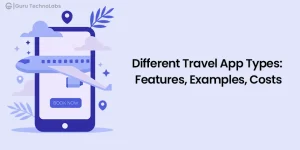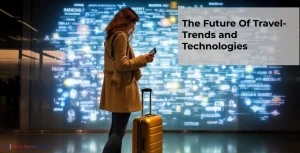Travel App Development: A Nitty Gritty Guide
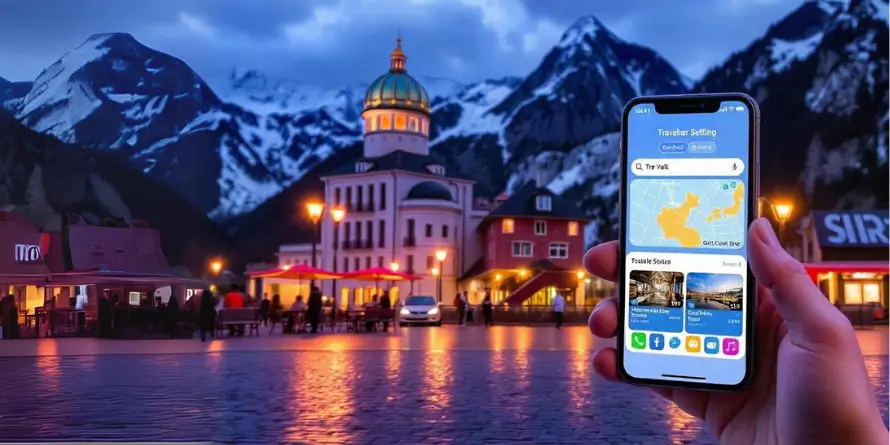
Travel applications are becoming increasingly important for travelers and business owners in the ushering digital era. From booking flights online to applying discounts to hotel bookings and tracking flight status in real-time, the digital transformation in the travel industry has created one of the world’s largest industries.
Travel app development was quick to capitalize on this opportunity to roll out travel apps like Airbnb that benefit travel business owners and travelers, as the importance of travel app development is more pronounced than ever.
The market for a travel planner app is expected to exceed $1445.1 billion by 2032, so if you are still deciding whether to build a travel app, now is the time. Building a travel app requires deeply analyzing ideas, trends, and development steps. In this blog, we have prepared a detailed plan for the travel app development process. So make yourself comfortable and enjoy the read!
How has the Travel and Tourism Sector Changed in the Past 10 Years?
The travel industry has changed dramatically in the last decade, especially regarding technology, digitization, and epidemics. The travel and tourism industry has witnessed dynamic changes over the last decade due to technological advancement and consumer preferences.
The study also found that the modern world has experienced the most significant shift in adopting digital technology in the travel sector for planning and booking trips.
A decade ago, planning a holiday or vacation was arduous since it required visiting traveling agents or spending considerable time flipping through travel magazines. On the other hand, in today’s modern world, it largely depends on the internet, and travelers leverage various digital resources(apps, websites, search engines, social media, etc.) that are available to them.
- Online Booking Platforms: Some of these players, such as MakeMyTrip and Goibibo, have become very popular by listing in the online mode. These platforms enable users to check the costs of various flights, read customers’ feedback, and book flights, accommodation, and activities simultaneously.
- Mobile Apps and AI: The evolution of mobile apps has also supported this process. The real-time information and personalization available through TripIt or Google Maps applications make traveling easier.
- Changing Consumer Preferences: The current traveler is more informed and empowered than a few decades ago. With quick and direct contact information to reviews, social media accounts, and online communities, they are more likely to focus on obtaining individualistic experiences rather than being restricted to significant tourist attractions and activities.
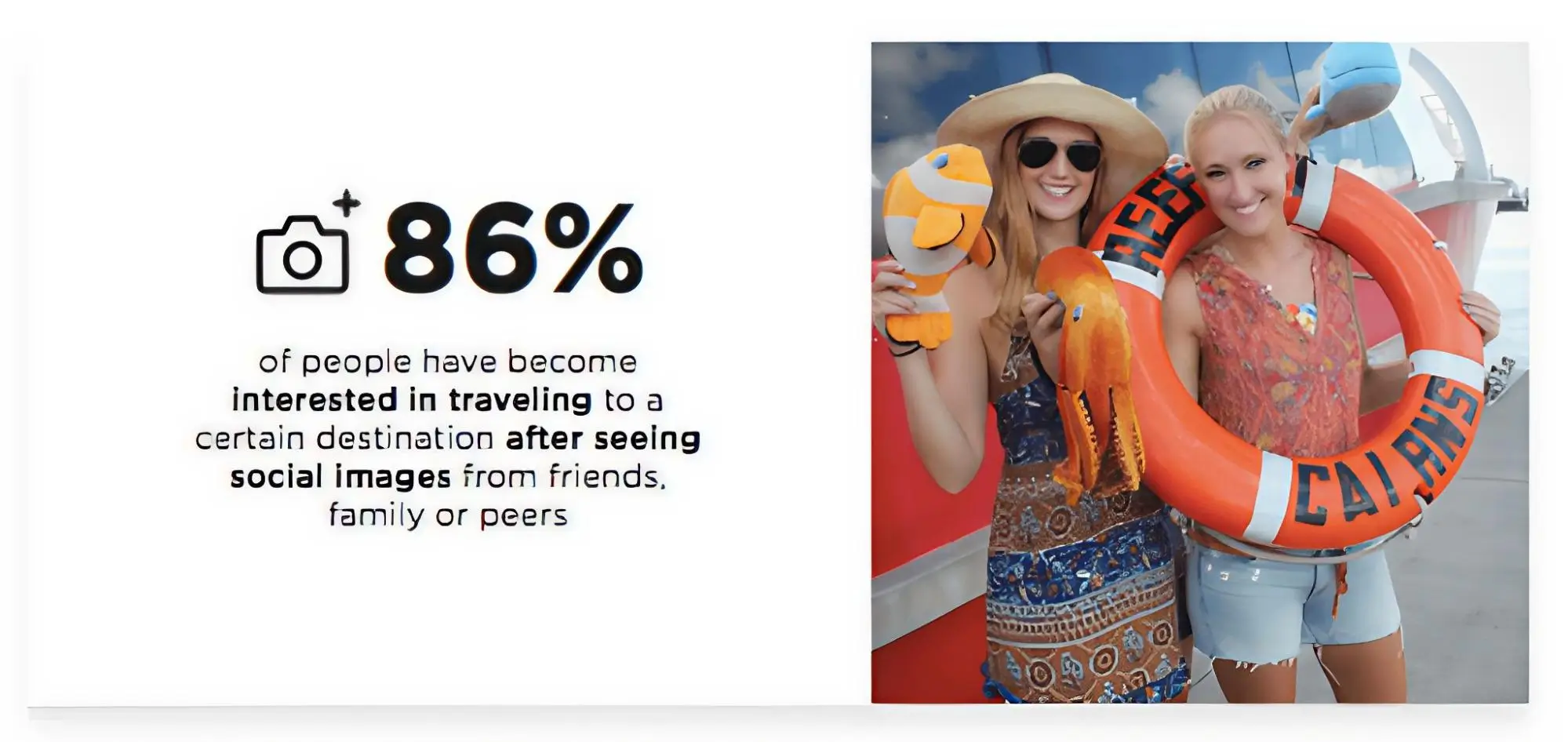
(Source: Nosto)
Social media platforms have undoubtedly become essential to the decision-making process when browsing for different travel services. Popular social media platforms such as Instagram and TikTok have become powerful tools that shape travel preferences and selection.
Social media and consumer advocates, such as influencers and travel bloggers, have now assumed responsibility for influencing consumers’ travel trends.
Travel services like Viator and GetYourGuide present selected local food and wine experiences to allow tourists to interact more profoundly with a specific place. This trend can be attributed to an inherent need to improve travelers’ lives and a passion for entertaining travel.
20+ Eye-opening Stats on the Travel and Tourism Industry
In today’s digital age, where flight and hotel bookings are confirmed in a nanosecond and a 10-day long trip can be planned within a couple of days, it is hard to imagine days back in the “golden age of travel.” Thanks to modern technology, traveling today is more affordable and convenient than ever before.
It is not a novel concept to anyone that the usage of smartphones is on the rise among travelers.
Moreover, 2024 is considered one of the critical years for the travel and tourism sector, as the impact of the pandemic has overcome all sectors, and global tourism spending is projected to reach $2 trillion before 2024 ends.
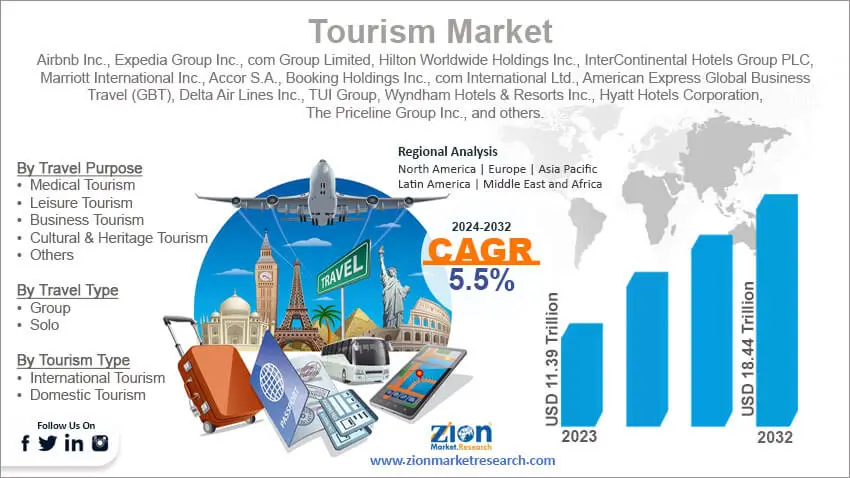
(Source: Zion Market Research)
- As per the report shared by experts, the global tourism market is anticipated to grow annually at a CAGR of around 5.5% over the forecast period of 2024-2032.
- According to data released by Statista, total revenue from mobile apps used in the travel sector increased by 38% and is all set to reach $296 million.
- The increasing penetration of digital transformation in the travel sector is projected to drive market growth during the said period.
- The global online travel industry is currently valued at €474 billion.
- In 2022, the UK had a 12% market share in online advertisement expenditure for the travel and leisure sector, while the USA followed with 7%.
- About 58% of mobile travel apps are used at least monthly, Think With Google reported.
- More than 33% of travel business owners use AI-powered chatbots for swift customer support and personalized customer assistance. For instance, AI chatbots like Sofia from TAP Portugal Airlines and Julie from Amtrak offer smooth and quick customer support.
- Contactless, aka digital and UPI payments, allows for smoother transactions and enhanced safety while traveling.
Digital transformation is having a considerable impact on the travel industry, which will likely continue in the future. So, staying abreast with the latest trends and technologies is necessary for travel business owners; otherwise, you risk being left behind in the race.
Digital Transformation (DX): A Competitive Edge in the Travel and Tourism Sector
In recent years, the travel and tourism sector has been pressured to digitize their operations and offerings. With the rise of on-demand companies, such as MakeMyTrip, Airbnb, and Uber, conventional travel offerings have been forced to revamp their operations to remain competitive in the saturated market.
From customer journeys to customer preferences to wise boarding passes to online ticket booking to compare prices and read reviews, digital transformation in the travel sector ensures rapid business growth for travel business owners while facilitating easy commutes for travelers.
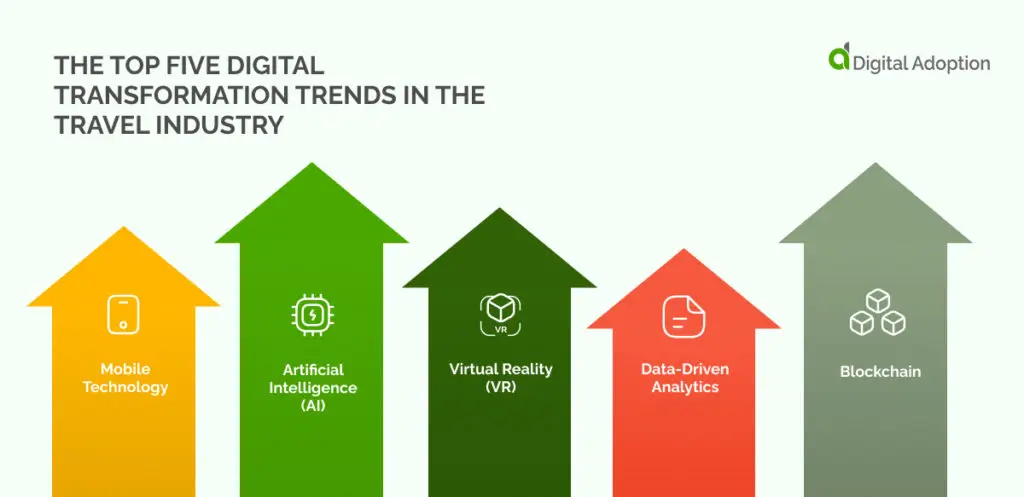
(Source: Digital Adoption)
Some technologies have been at the forefront of innovations when analyzing how digital technologies have changed the travel sector.
Big Data for Personalization
Travel business owners harness large volumes of data from various sources, such as online communities and social media platforms, to personalize user experience.
Airbnb is an excellent example.
IoT To Allow Seamless Travel
Smart traveling wallets, contactless payment, and portable Wi-Fi spots are part of the IoT ecosystem. Take smart luggage: Travelers can track their luggage in real-time via mobile apps or web interfaces and lock or unlock it remotely.
VR for Enhanced Experience
The global AR and VR market in the tourism sector is projected to reach $9.6 billion by 2025. The launch of Apple Vision Pro and Meta’s next-generation virtual headset are a glimpse of what will come.
In short, the travel and tourism sector has undergone a significant transformation over the past decade and shows no signs of slowing down.
What is Travel App Development?
Travel app development creates software to assist users in planning, booking, and managing their travel experiences. From making reservations to booking trips to managing bookings and exploring how-to travel guides, a fully featured travel app is a one-stop solution that allows passengers to arrange their trips appropriately.
If you are a travel business owner looking for a travel app development approach, make sure you know what type of travel app your business needs and what modern features you want to integrate to streamline operations and boost customer conversion ratio.
Various Types of Travel Apps
Mobile apps have become crucial in the modern travel industry as the world becomes a global digital village. There are many types of travel applications, and if used correctly, they can lead to optimum customer satisfaction.
1. Ticket Booking App
The Ticket booking app is a solution that will address the needs of travel business owners who may otherwise find the booking process tedious. This easily accessible and convenient interface enables clients to purchase tickets for flights, tours, and activities. Incorporating this app into your services solves a problem for your customers and allows you to analyze data.
2. Itinerary Planning App
Travel businesses looking to add value through unique itineraries may find an itinerary-planning app valuable. One of the distinctive features of such an application is that it allows the user to plan the overall vacation itinerary, including flights, accommodation, and activities.
3. Hotel Booking App
With features such as price comparison, customer reviews, and booking options, this app can greatly improve customers’ experiences. Using a hotel booking app on your platform means you can highly optimize bookings and guarantee real-time room availability and promotions.
4. Navigation Apps
By helping them locate dependable maps and navigation techniques, you can improve customer satisfaction and help everyone who gets lost find their way to the correct locations.
5. Travel Insurance Apps
As a travel business owner, it is vital to encourage your customers to take out an insurance policy for their journey. Accidents like luggage loss, theft, canceled trips, lost passports, medical emergencies, etc., can be covered in travel insurance apps and offer great relief to customers as they receive a refund for all the above-mentioned losses.
6. Travel Guide Apps
A travel guide app can offer a list of places to visit, places to eat, cultural information, and even safety information to improve travelers’ experiences. In addition, by providing your business as a source of credible information, people will have more trust in you and make additional bookings for your business.
What If Travel Business Owners Don’t Invest in Robust Travel Development Solutions?
When running and managing a travel business, there are many components to consider when aiming for growth. One of the most essential actions you can take is to invest in travel and tourism app development. For those who are new or have little experience in travel development solutions, we understand if you experience initial doubts and apprehension before starting.
By forgoing travel app development for your business, you could be missing out on the following:
- Growth
- Loose customer trust
- Business expansion
- Left behind in the competition
- Brand building
So, it is justified to say that if you have a scope, you should invest in travel development solutions, and indeed, it’s a smart move for your business. No business owner wants to bear the above challenges in their business; hence, investing in a travel app development comes with several benefits, such as,
- Reach potential services worldwide
- Gain more and still be cost-effective
- Reach the right people at the right location
- No latency, engage people in real-time
- Build brand credibility on the go
Nowadays, almost everyone uses social media, apps, and websites, and people are more interested in accessing various services online because of their ease, flexibility, and options. And it’s booming daily.
It is common practice among travel business owners to establish their online presence through a website or app. However, since people use digital channels, having only a social media presence is inadequate for maximizing the business. Travel and tourism app development is about being online where people are and offering them various features and functionalities to improve business. Discover the benefits and key features of tourism apps.
Steps for the Travel App Development Process
Like any other app development, the travel app development process also consists of a few steps that can be followed to streamline it.
1. Discovery Phase & Market Analysis
Conducting market research is the first step to developing a travel app. Research the market to identify trends, competitors, and target audiences. Through surveys and analysis, collect insights on users’ needs and preferences; this will help you integrate which features to add to the app to stand tall in the market.
2. Decide App Features
Outline the key features that will set your app apart from the crowded market based on your research. Add essential features such as a booking system, itinerary planning, real-time notifications, and user reviews. Pay attention to features that enhance user experience while keeping minimalism in mind.
3. Hire A Travel App Development Company
Consult an experienced and reputed travel app development company to build a unique and scalable travel application. Review their portfolio, assess technical skills, read online reviews, and share your requirements. A strong partnership facilitates the right development approach and project management.
4. MVP Development
Before opting for a whole development approach, get started with MVP development to evaluate your app’s core functionality with real users. This approach allows you to collect feedback without a full-scale launch.
5. QA & Testing
Perform quality assurance and testing to fix bugs before the launch. Leverage different testing methods, such as functional and user experience testing, to ensure the app performs smoothly.
6. Maintenance and Launch
Once you are done with the development and testing, launch the travel app to boost its visibility and user engagement. Keep an eye on the app’s performance and start collecting user feedback. Regular updates and maintenance will keep your app relevant and user-friendely.
How Much Does the Travel App Development Cost?
We all know how unpredictable the app development market is, so it is impractical to attach a price tag. The cost of developing a travel app is determined by taking into account several variables, such as,
- The location from which you are hiring app developers
- Features and functionalities you want to integrate
- How much time does it take to develop a travel app?
- The platform that you want to develop your app for
- The tech stack you want to employ
- The app development team’s experience and cost
For businesses interested in using artificial intelligence in their travel apps, understanding the AI app development cost can provide insights into budgeting and feature integration.
What Can Guru TechnoLabs Offer as Your Travel App Development Partner?
Guru TechnoLabs takes pleasure in its experience, bridging the gap between technical challenges and innovation and facilitating the digital transformation journeys of numerous industries and enterprises. Our team of professional developers will work closely with you to overcome your issues and offer a solution that appeals to your audience. Our team can help your travel app succeed because they stay connected with the market trends and know how to convert your vision into a reality with the latest tech stack.
Final Thoughts
The travel and tourism sector is booming, and it has become a relaxing gateway for many people since online tools help them make their journeys comfortable and better. Therefore, more and more travel business owners are looking for scalable and robust solutions that allow them to deliver a top-notch customer experience while meeting their changing preferences.
Getting a travel app is not a daunting task. A successful travel app can be developed by partnering with an experienced travel app development company like Guru TechnoLabs. We adhere to the latest frameworks and help you overcome technical challenges with ease.



